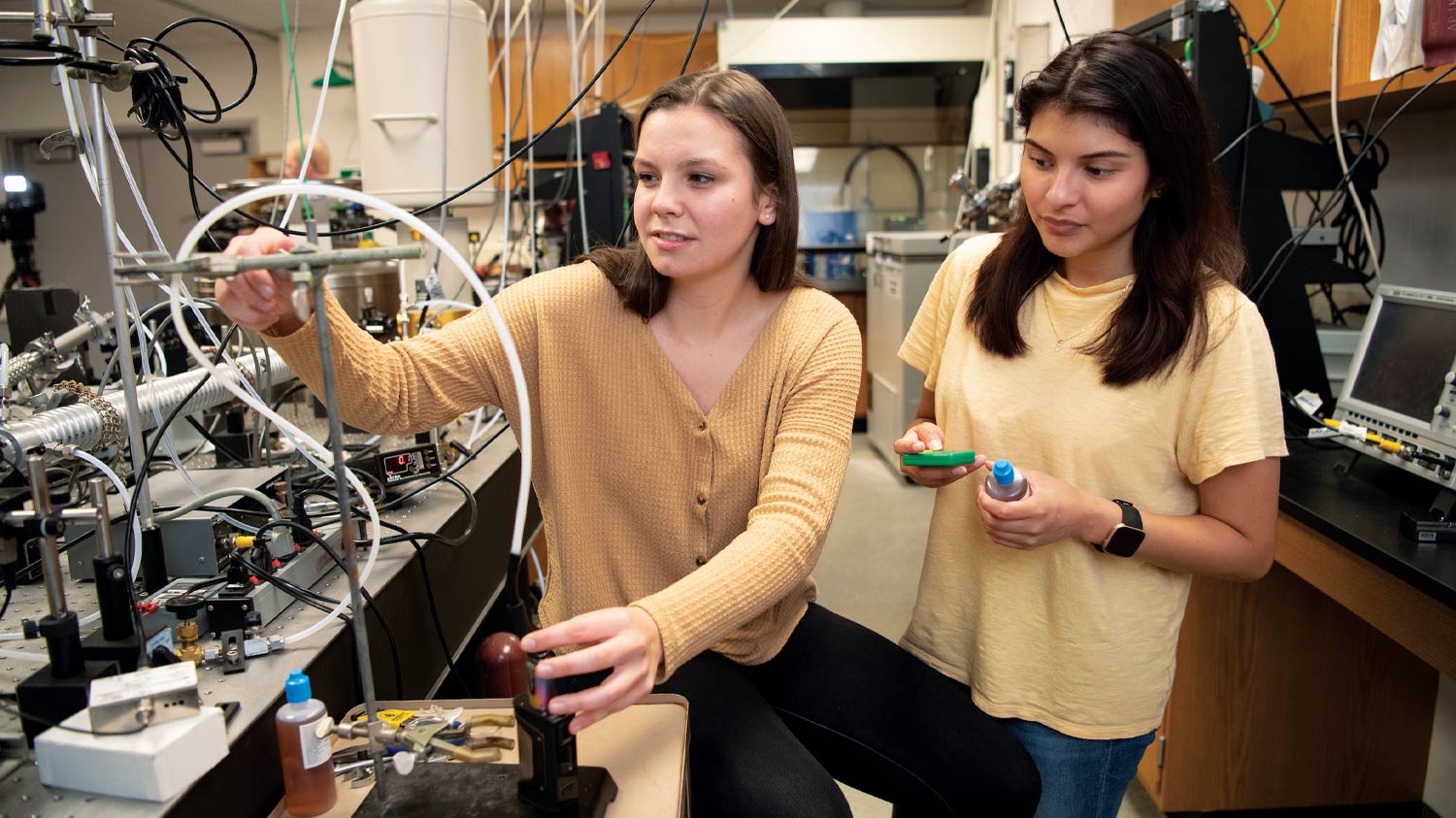
The dangers of vaping and e-cigarettes briefly claimed headlines in fall 2019, when more than 40 deaths and 2,000 cases of serious lung ailments were linked to vaping.
“We’re the first to show the relationship with carbon monoxide as a function of the power of the e-cigarette,” says Professor Dabrina Dutcher, chemical engineering and chemistry, who began studying e-cigarettes with students three years ago. “The study proves that we really don’t know what’s coming out of e-cigarettes, but we now know there are potentially harmful chemical reactions.”
In October, Dutcher’s team, including Professor Karen Castle, chemistry, published its first study in Tobacco Control journal. Dutcher says the study’s implications can’t be underestimated – and that’s a major accomplishment for the undergraduate research team, including Rileigh Casebolt ’18, Jewel Cook ’20, Ana Islas ’20 and Carnegie Mellon University student Alyssa Brown.
The project began as Casebolt’s honors thesis. After Casebolt graduated, Cook, Islas and Brown, for two years, continued collecting data for the study.
“I’m grateful that I was able to join a project that’s super relevant, particularly since I’m very big on direct applications rather than theoretical concepts,” Islas says. “Seeing something that’s so applicable and being able to quantify the danger — the carbon monoxide — helps give people hard facts to digest when they are contemplating buying an e-cigarette.”
Beyond sounding a warning to peers, the project generated another positive result for Cook, who cited her research results to convince her father to quit using e-cigarettes. She’s pleased to share her concerns about vaping hazards through the study.
“It’s very exciting just for our research to be relevant to current news-making headlines,” Cook says. “I have a lot of people texting and calling me about the reports on e-cigarettes; they’re telling me that our research needs to get out there so everybody can know what we’ve found.”